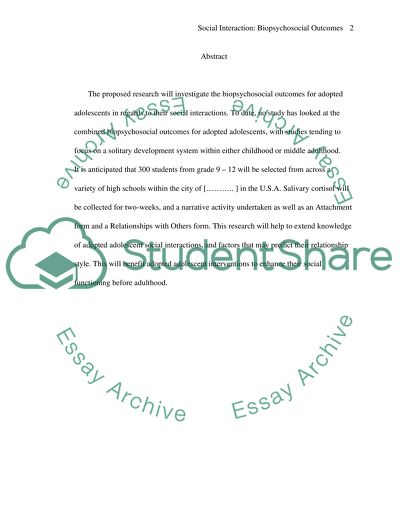Biopsychosocial Outcomes for Adopted Adolescents Essay. Retrieved from https://studentshare.org/miscellaneous/1533568-biopsychosocial-outcomes-for-adopted-adolescents
Biopsychosocial Outcomes for Adopted Adolescents Essay. https://studentshare.org/miscellaneous/1533568-biopsychosocial-outcomes-for-adopted-adolescents.


